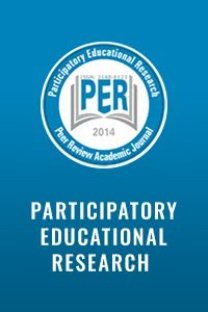An examination of the relationship between secondary school students’ abstract thinking skills, self-efficacy perceptions and attitudes towards mathematics
This study aims to examine whether there is a relationship between abstract thinking skills, self-efficacy perceptions and attitude towards mathematics and how these variables predict mathematics achievement. The study was conducted with 198 eighth-grade students who were selected by random sampling and the relational screening model was used. For data collection, the tools of “Abstract Thinking Test in Mathematics”, “Self-Efficacy Perception Scale towards Mathematics”, “Mathematics Attitude Scale” and Mathematics course notes of students were resorted to. According to the findings, it was concluded that there were significant relationships between students’ abstract thinking skills, self-efficacy perceptions and attitudes towards mathematics, and these variables explained 37% of the variance in mathematics achievement. There was no significant difference in mathematics achievement between the groups according to the type of school, while it was found that the scores of the students' abstract thinking skills, attitude towards mathematics and self-efficacy perceptions differed in favor of the students studying in non-boarding secondary school. In addition, no significant difference was observed between the groups in terms of students' mathematics achievement according to their boarding status. It was found that there were significant differences in terms of the other three variables. Suggestions were made to increase mathematics achievement, especially in boarding secondary schools, and it was also offered to increase the feasibility of the environment of the boarding secondary schools.
___
- Wasike, A. (2013). Effects of attitudes of female students on the performance in mathematics in various types of secondary schools in teso district, Kenya. Journal of Education and Practice, 4(11), 119-131.
- Dobbie, W. & Fryer, R.G. (2011). Are high-quality schools enough to ıncrease achievement among the poor? Evidence from the Harlem children’s zone. American Economic Journal Applied Economics, 3(3), 158-187. https://doi.org/10.1257/app.3.3.158
- Curto, V. E., & Fryer, R. G. (2014). The Potential of Urban Boarding Schools for the Poor Evidence from SEED. Journal of Labor Economics 32(1), 65-93. https://doi.org/10.1086/671798
- ISSN: 2148-6123
- Yayın Aralığı: Yılda 6 Sayı
- Başlangıç: 2014
- Yayıncı: Özgen KORKMAZ
Sayıdaki Diğer Makaleler
Cavit ERDOĞMUŞ, Emre ÇOBAN, Özgen KORKMAZ, M. Yaşar ÖZDEN
Ebru KÜLEKÇİ AKYAVUZ, Esra ASICI
Angeliki LİTHOXOİDOU, Evangelia SEİRA, Agapi VRANTSİ, Catherine DİMİTRİADOU
Kadir KABAK, Agah Tuğrul KORUCU
Hale DERE ÇİFTÇİ, Remziye CEYLAN, Feride GÖK ÇOLAK
Ferhat KARAKAYA, Merve ADIGÜZEL, Gökşen ÜÇÜNCÜ, Osman ÇİMEN, Mehmet YILMAZ
